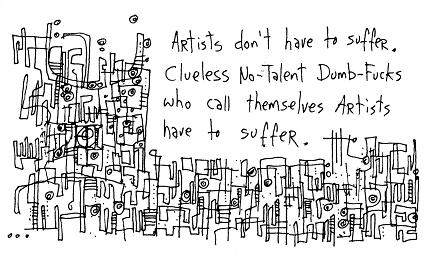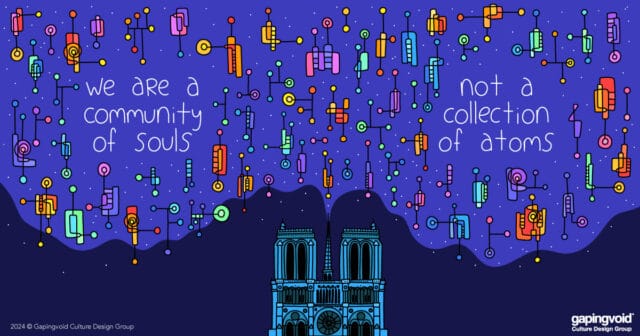
Mark McGuinness interviewed me recently over at the Lateral Action blog. Probably my best interview ever. A huge amount of what I’ve been thinking about lately somehow managed to make it onto the page. For example:
2. A lot of artists and creative types see marketing as an evil necessity – or just plain evil. What would you say to them?
“Artists cannot market” is complete crap. Warhol was GREAT at marketing. As was Picasso and countless other “Blue Chips”. Of course, they’d often take the “anti-marketing” stance as a form of marketing themselves. And their patrons lapped it up.
The way artists market themselves is by having a great story, by having a “Myth”. Telling anecdotal stories about Warhol, Pollack, Basquiat, Van Gogh is both (A) fun and (B) has a mythical dimension… if they didn’t, they wouldn’t have had movies made about them. The art feeds the myth. The myth feeds the art.
The worst thing an artist can do is see marketing as “The Other”, i.e. something outside of themselves. It’s not.
Thanks Mark! I enjoyed that.



